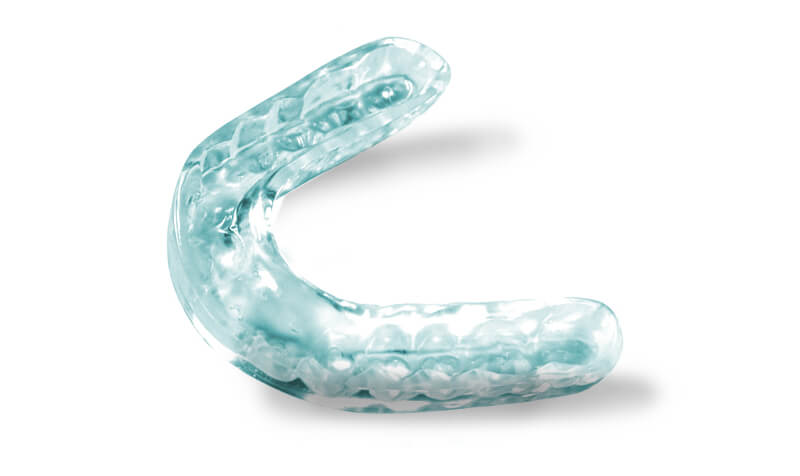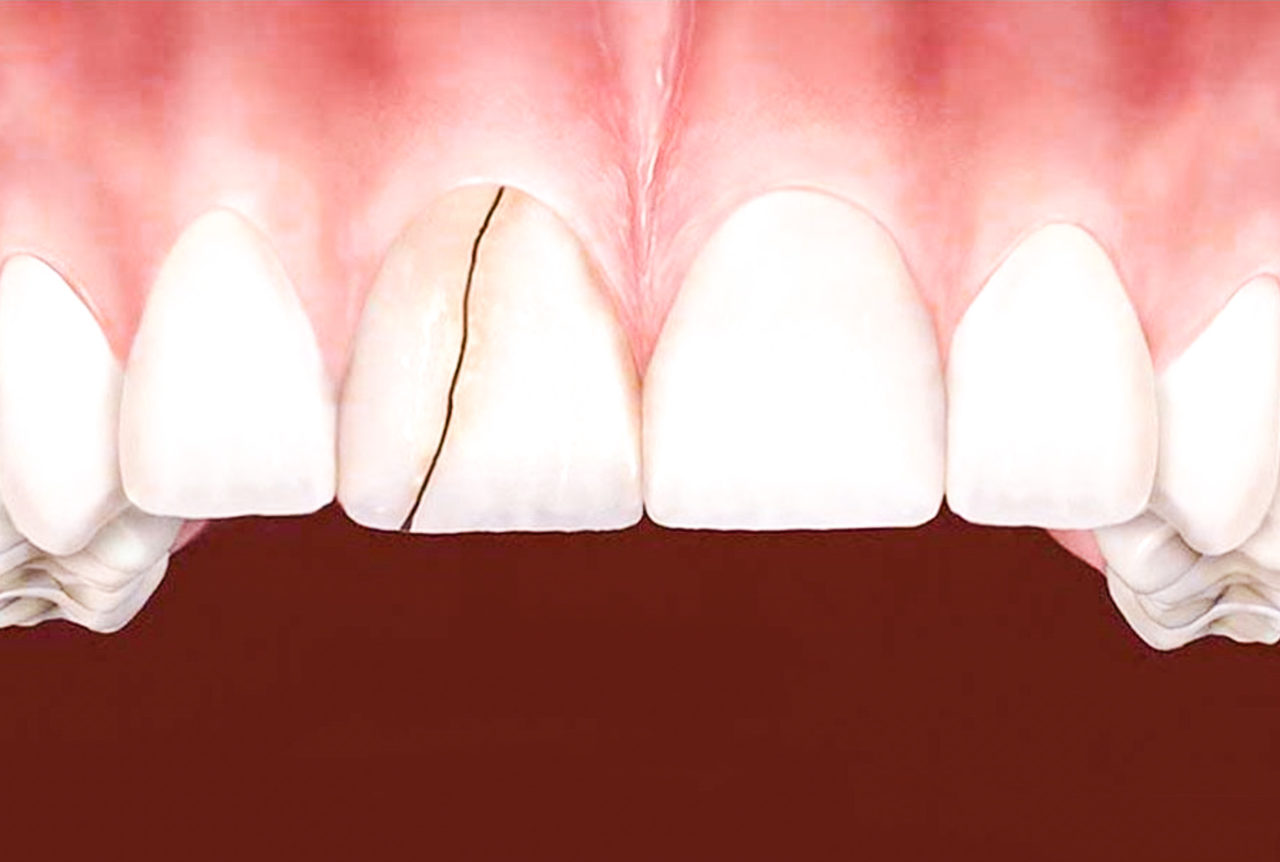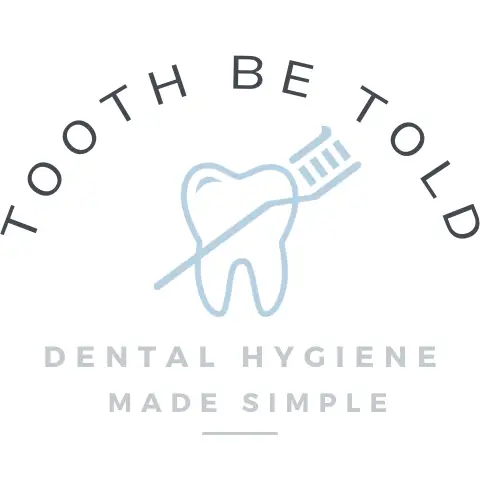Clenching and grinding, also called bruxism, can cause irreversible damage to teeth and jaw. As a hygienist, I counsel and recommend night guards to my patients who could benefit from them. Night guards have so many benefits, but do they help with clenching? Do they stop clenching and grinding altogether?
Dental night guards help with teeth clenching by providing a protective cushioned barrier between dental arches. Night guards do not stop clenching entirely but prevent irreversible wear and damage to teeth and jaws. You can wear a night guard during the daytime as well as nighttime if needed.

Nightguards help prevent damage to the teeth and bone of the jaws, help with jaw pain, and headaches, and even help people sleep better.
In this post, I cover everything you need to know about night guards, including a list of how to stop clenching your teeth, how medical conditions like sleep apnea can interfere with night guard usage and things you need to watch out for!
Clenching teeth and night guards; Helpful or hindrance?
Dental night guards can help in so many ways, especially with the harmful effects of clenching, but they may not stop the clenching from happening altogether.
While wearing the night guard, it opens the jaw 2-4 mm, thus preventing full engagement of the muscles in the jaw. By reducing the full engagement of the muscles, the body will have less urge to clench. However, if a night guard does not cover all of the teeth in the arch, more damage can occur.
Wearing an ill-fitted or over-the-counter night guard that is not custom fit can make you clench more because the teeth may not all be on a flat plane.
The nightguard must fit over all the teeth, and when biting down, all the teeth hit the nightguard with the same pressure and force. Diffusing the force of the bite is one of the most beneficial things of a night guard.
If a night guard is not worn, only some of the teeth in the mouth may be getting all the force from clenching. This can cause wear, chipping, cracking, and bone loss, leading to loose teeth and premature tooth loss.
Read Now: How Long Do Dental Nightguards Last For? Hygienist Explains
If the forces are not even, our body will continue to clench and grind, trying to make a flat plane, continuing the bad habit.
By wearing a properly fabricated and well-fitting night guard, all this force is distributed evenly, lessening the impact on the individual teeth and helping prevent damage from clenching.
But starting to wear a night guard can take some getting used to.

How long does it take to get used to a new night guard?
It can take a few weeks for the mouth to become accustomed to a night guard. Night guards take some getting used to, as the body recognizes it as a foreign object in the mouth. I have had patients tell me that they have subconsciously taken out their night guard at night while they are sleeping.
My advice to them is to keep trying. Keep wearing it, at least for 30 consecutive days.
Read now: Is a Top or Bottom Night Guard Better? Hygienist Explains!
Night guards can trigger our gag reflex as well. The gag reflex can be triggered by the position of the night guard on the soft tissue, for example, if it touches the soft palate.
The thicker the night guard, the more likely it will trigger the gag reflex.
The gag reflex can be overcome over time, as the soft palate gets used to the night guard touching it. Or, you could start with a thinner night guard. It would be best to discuss your gag reflex with the dentist who is making the night guard.
After 30 consecutive days if the night guard is causing issues with gag reflex, or you still can't get used to it, talk with your dental professional about getting a thinner one made, or explore other options.
There could also be some underlying health conditions contributing to the issue with getting used to the night guard.
Clenching and grinding caused by sleep apnea
Our bodies are amazing things and have involuntary reflexes that keep us living.
When sleeping, our bodies keep our airways open and allow us to keep breathing when we are getting some much-needed shut-eye.
But in some instances, like with sleep apnea, the airway gets obstructed by our tongues and jaw position. Sleep apnea is a serious medical condition that often goes a long time before getting diagnosed.
If a patient has undiagnosed sleep apnea, starting to wear a night guard could obstruct the flow of air into the airway and worsen their condition. If a patient has sleep apnea, I always like them to discuss with their sleep apnea doctor if a dental night guard is right for them or if they should look into getting a snore guard.
A snore guard is such an amazing dental appliance that pulls the lower jaw forward, opening up the airway and preventing obstructing the airway. Snore guards can help alleviate sleep apnea and lead to a better quality of life.
I have done so much research and learning on sleep apnea related to dental hygiene, and I have encouraged many of my patients to speak to their doctor about sleep apnea and go for sleep studies.
How do I stop clenching my teeth at night?
Clenching teeth can occur from stress, tension, hard concentration, sleep apnea, acid reflux, malocclusion, sleep position, diet, and medication side effects. Decreasing and managing these can help stop teeth clenching.
Below is a list of how to stop clenching teeth at night;
- Manage and reduce stress
- Have head and neck massage to reduce muscle tension
- Take breaks from hard concentration
- Seek medical treatment if suffering from sleep apnea or acid reflux
- Take medication to reduce acid reflux
- Take muscle relaxant
- Correct bite and straighten crooked teeth
- Change sleep positioning and avoid sleeping on your back
- Avoid stimulants before going to sleep
- Discuss medication side effects with doctor
- Wear a dental night guard
Managing these things can be challenging, and please don’t put a lot of pressure on yourself to do them all at once.
Take baby steps, and talk with both your dental professional and medical doctor to help reduce teeth clenching.
Read now: How Often Should You Clean a Night Guard? Hygienist Explains
Best night guard for teeth grinding
The best night guard for teeth grinding is professionally made by a dental professional. The night guard should cover all biting surfaces of the arch it is made for, and when biting down, all teeth of the opposing arch should have an equal distribution of forces.
Ill-fitting night guards can cause over-eruption of teeth, movement of teeth, and damage to the teeth’s nerves, and the cost to fix can exceed $5000, and that is if it can be fixed.
Ill-fitting night guards are a choking hazard
I have had patients come in to see me, and they have brought their broken night guard with them. They had literally snapped the night guard in multiple pieces. They casually tell me that they have been wearing it broken for some time.
The danger of wearing a broken night guard is that the pieces can become loose, come off the tooth, and be inhaled or swallowed.
Over-the-counter night guards can pose a higher risk of choking because they are not checked by a dental professional for proper fit when they are made.
Most over-the-counter night guards are made out of flimsy material that degrades quickly and may never sit tight on the teeth.
The harmful side effects and risks of over-the-counter night guards are why I always recommend having a professionally made night guard.
I hope I have helped you find the information you were looking for regarding clenching and night guard use!
Have a wonderful day.
Holly 🙂
Source 1: https://www.sleepfoundation.org/sleep-apnea/link-between-sleep-apnea-and-teeth-grinding

